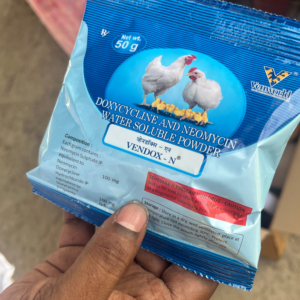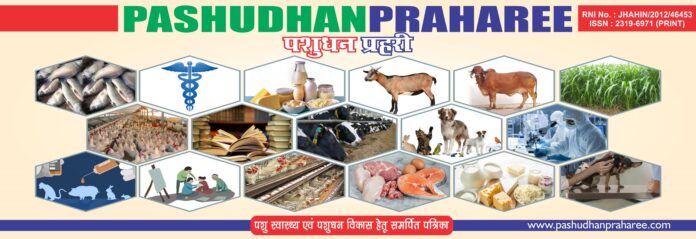Indian poultry giant selling antibiotics for growth promotion on farms
Venky’s, a major poultry producer in India, is marketing antibiotics to be used by farmers in ways that contribute to the spread of drug-resistant infections, the Bureau of Investigative Journalism (TBIJ) can reveal.
The company is selling products aimed at speeding up poultry growth which contain drugs vital for human health. Other critically important antibiotics are being sold for “preventative use”, a controversial practice that involves healthy birds as young as a day old being dosed with drugs to reduce the likelihood of disease.
Poultry farms in southern India are using the drugs as recommended by Venky’s on its website, TBIJ has found after visiting several earlier this year. The use of antibiotics for growth promotion is banned in the EU and the US, and preventative use is banned in the EU apart from in exceptional cases. The World Health Organization (WHO) has opposed both practices because they can reduce the effectiveness of the drugs when treating infections in humans.
In 2018, TBIJ revealed that Venky’s was selling colistin as a growth promoter. Colistin is a “last-resort” antibiotic owing to its importance in treating severe human infections. The revelations prompted criticism and led the Indian government to ban such use of the drug.
At the time, Venky’s told TBIJ that on their own farms and those of their contractors, “antibiotics are used only for therapeutic purpose”. But it appears Venky’s is now selling different drugs to be used both preventively and for growth promotion.
The company did not respond to repeated requests for comment on the latest investigation.
Venkys was founded in 1971 and now has a significant presence across India, supplying a number of the country’s fast-food restaurants including KFC. With operations in Punjab, Uttar Pradesh, Haryana and elsewhere, the company is involved in various stages of the poultry production chain: it slaughters around tens of millions of birds a year; operates its own hatcheries, feed mills, processing plants and farms; and sells birds to contract farmers who rear them for meat processing.
It also sells medicines, vaccines and farm equipment.
TBIJ found Venky’s marketing a number of products containing vital medicines, both for preventative use and as growth promoters.
Its medicated poultry feed Tylomix, which is listed on its website, contains the antibiotic tylosin, part of the macrolide class of drugs classified by the WHO as “critically important” to human medicine. This classification covers drugs that are the sole option – or one of a handful – to treat foodborne diseases that have become resistant to antibiotics.
The product listing on Venky’s website says Tylomix can be used for growth promotion in poultry reared for meat and says it should be added to feed at the “pre-starter” phase, an industry term referring to chicks aged up to 10 days.
Another medicated feed marketed by Venky’s for growth promotion is Amo-premix. This product contains amoxicillin, a drug regularly used to treat humans and classified by the WHO as highly important for human health.
On top of this, Venky’s is advertising Solutyl, a product that also contains tylosin, for “preventive treatments” and recommends it is administered for the first three days of the chick’s life. A product called Vendox, containing the critically important antibiotic neomycin, is touted to “prevent early chick mortality”, or preventative use.
‘A recipe for disaster’
Earlier this year TBIJ visited a farm in Telangana state, southern India, that houses tens of thousands of chickens per year and supplies Venky’s, according to staff there. Workers said a number of medicines were given to the animals throughout the production cycle.
“This is used after the chicks arrive,” a worker said about Vendox. “We start it after two days.”
It is not known which retailers this farm supplies meat to and there is no suggestion any of the farms TBIJ found to be using drugs in this way are KFC suppliers.
TBIJ was also able to buy Vendox and another antibiotic product containing “critically important” drugs from a specialist poultry pharmacist in Telangana state without veterinary prescriptions.

‘We start it after two days’, said one farmer of their use of Vendox on chicks
Dr Aravind Reghukumar of the Kerala Anti-Microbial Resistance Strategic Action Plan (KARSAP), a government initiative, told TBIJ: “Unmonitored use of medically important antibiotics in the poultry sector for non-therapeutic purposes is a recipe for disaster and should be addressed at the earliest.” Reghukumar said there is a global need to preserve the efficacy of antibiotics and minimise the risk of antimicrobial resistance, and that this is only possible through an approach that recognises the links between people, plants and animals.
The overuse of antibiotics on farms around the world has led to the spread of drug-resistant foodborne diseases, including salmonella, E coli and campylobacter, which can be spread via contaminated meat and other food products.
In 2019, a landmark study of the global impact of antimicrobial resistance (AMR) estimated resistance caused at least 1.27 million deaths – more than HIV/AIDS or malaria – and that antimicrobial-resistant infections played a role in 4.95 million deaths.
Main photo: A worker unloads a sack of Venky’s chicken feed outside a poultry farm in Telangana, southern India. Credit: Dhiraj Singh / Bloomberg via Getty.
Reporters: Rahul M, Andrew Wasley and Misbah Khan
Additional reporting: M Naga Charan
Environment editor: Robert Soutar
Deputy editor: Chrissie Giles
Editor: Franz Wild
Production editor: Alex Hess
Fact checker: Somesh Jha
Impact producer: Grace Murray
Our Food and Farming project is partly funded by Quadrature Climate Foundation and partly by the Hollick Family Foundation. None of our funders have any influence over our editorial decisions or output.
NB: Originally published in https://www.thebureauinvestigates.com/stories/2024-04-05/indian-poultry-giant-selling-antibiotics-for-growth-promotion-on-farms/


